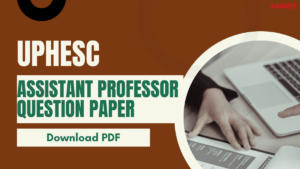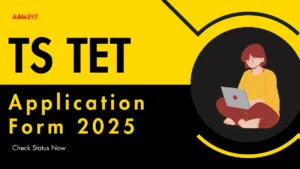Table of Contents
Cracking the CSIR NET (Council of Scientific and Industrial Research National Eligibility Test) is a big milestone for students and researchers looking to make a career in science and technology. But what if you qualify the exam but don’t qualify for the Junior Research Fellowship (JRF)? Many aspirants find themselves in this situation and wonder about their options. In this article, we’ll explore what it means, the opportunities still available, and the next steps you can take.
Understanding CSIR NET and JRF
Before diving into the details, it’s essential to understand the difference between CSIR NET and JRF:
- CSIR NET : This is a national-level exam conducted to determine the eligibility of candidates for lectureship and research roles in Indian universities and colleges.
- JRF (Junior Research Fellowship): This is a prestigious fellowship awarded to top CSIR NET qualifiers, providing financial support for pursuing research in science and technology.
| Aspect | CSIR NET | JRF (Junior Research Fellowship) |
|---|---|---|
| Purpose | Eligibility for Assistant Professor/Lectureship in universities/colleges. | Funding for PhD research + eligibility for lectureship. |
| Stipend | No stipend. | 37,000–42,000/month (for 5 years). |
| Age Limit | No upper age limit. | Max 28 years (relaxation for SC/ST/OBC/PwD). |
| Validity | Lifetime (for teaching roles). | 3 years (extendable to 5 years). |
| Career Path | Teaching positions (e.g., Assistant Professor). | Research (PhD) → Scientist/Academic roles. |
What Happens if You Clear CSIR NET but Not JRF?
If you clear the CSIR NET exam but do not qualify for JRF, here’s what you need to know:
- Eligibility for Lectureship: Clearing CSIR NET makes you eligible for the role of Assistant Professor in Indian universities and colleges. This is a significant career milestone for those aspiring to teach in higher education institutions. You can apply for teaching positions across the country, provided you meet the other eligibility criteria set by the institution.
- No Financial Support for Research: Unlike JRF qualifiers, candidates who clear only CSIR NET do not receive financial assistance for research. JRF provides a monthly stipend and research grants, which are not available to NET-only qualifiers. However, you can still pursue research independently or seek funding from other sources.
- Opportunity to Reappear for JRF: If you clear CSIR NET but miss the JRF cutoff, you can reappear for the exam in the future. The CSIR NET exam is conducted twice a year, giving you multiple chances to improve your score and secure JRF.
- Career in Government and Private Sectors: Clearing CSIR NET enhances your resume and opens up opportunities in both government and private sectors. Many organizations value NET qualification for roles in research, development, and scientific consulting.
- Pursue Higher Studies: If you’re passionate about research but didn’t secure JRF, you can still pursue a Ph.D. Many universities accept CSIR NET qualifiers for Ph.D. programs, though you may need to explore alternative funding options.
Differences Between CSIR NET and JRF
The CSIR NET (Council of Scientific and Industrial Research National Eligibility Test) and JRF (Junior Research Fellowship) are two closely related but distinct aspects of the same examination. While both are highly sought after by science and technology aspirants in India, they serve different purposes and come with unique benefits. Understanding the differences between CSIR NET and JRF is essential for students planning their academic and professional careers. Let’s break it down:
| Parameter | CSIR NET | JRF |
|---|---|---|
| Purpose | Eligibility for lectureship and teaching roles. | Financial support for advanced research. |
| Financial Benefits | No financial benefits. | Monthly stipend and research grants. |
| Career Opportunities | Assistant Professor or self-funded research. | Focused research with funding, teaching roles optional. |
| Validity | Lifetime validity for lectureship. | Valid for 2 years (extendable during Ph.D.). |
| Cutoff Marks | Lower cutoff for qualification. | Higher cutoff to secure JRF. |
| Focus Area | Teaching and academic roles. | Research and development in science. |
| Eligibility | Qualifies for lectureship and Ph.D. admissions. | Top CSIR NET qualifiers only. |
| Research Support | No financial support for research. | Provides funding for Ph.D. and research projects. |
Tips for Aspirants Who Missed JRF
If you cleared CSIR NET but didn’t secure JRF, don’t lose heart. Here are some actionable tips:
- Analyze Your Performance: Identify areas where you lost marks and work on improving them.
- Reappear for the Exam: Use your experience to prepare better and aim for JRF in the next attempt.
- Explore Alternative Funding: Look for scholarships, grants, or fellowships to support your research.
- Gain Teaching Experience: Start applying for lectureship roles to build your academic career.
- Stay Updated: Keep yourself informed about the latest developments in your field to stay competitive.
| CSIR NET Exam Important Links | |
| CSIR NET Notification | CSIR NET Syllabus |
| CSIR NET Previous Year Paper | CSIR NET Eligibility |
| CSIR NET Preparation Tips | CSIR NET Cut-Off |
| CSIR NET Salary | CSIR NET Exam Centre |




 UPHESC Assistant Professor Question Pape...
UPHESC Assistant Professor Question Pape...
 GAT Biotechnology City Intimation 2025 O...
GAT Biotechnology City Intimation 2025 O...
 TS TET Online Application Form 2025 Out,...
TS TET Online Application Form 2025 Out,...




